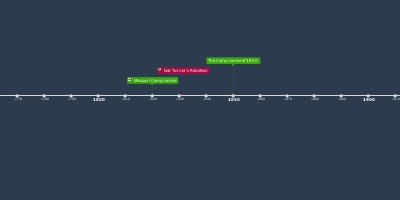4 feb 1793 anni - Fugitive Slave Act of 1793
Descrizione:
It decreed that slave owners and their “agents” had the right to search for escaped slaves within the borders of free states.In the event they captured a suspected slave, these hunters had to bring them before a judge and provide evidence proving the person was their property. If court officials were satisfied by their proof—which often took the form of a signed affidavit—the owner would be permitted to take custody of the slave and return to their home state. The law also imposed a $500 penalty on any person who helped harbor or conceal escaped slaves.
The Fugitive Slave Act of 1793 was immediately met with a firestorm of criticism. Northerners bristled at the idea of turning their states into a stalking ground for bounty hunters, and many argued the law was tantamount to legalized kidnapping. Some abolitionists organized clandestine resistance groups and built complex networks of safe houses to aid slaves in their escape to the North, more commonly known today as the Underground Railroad.
Refusing to be complicit in the institution of slavery, most Northern states intentionally neglected to enforce the law. Several even passed so-called “Personal Liberty Laws” that gave accused runaways the right to a jury trial and also protected free blacks, many of whom had been abducted by bounty hunters and sold into slavery.
Aggiunto al nastro di tempo:
Data:
4 feb 1793 anni
Adesso
~ 232 years ago
